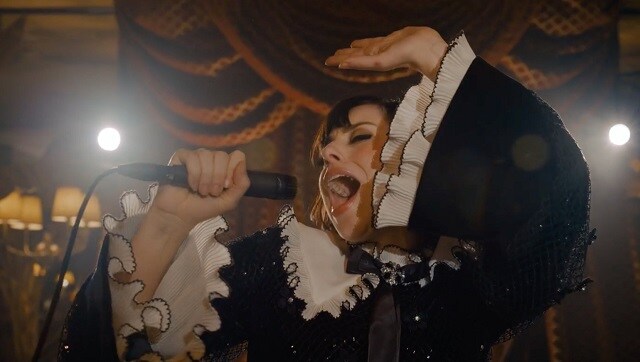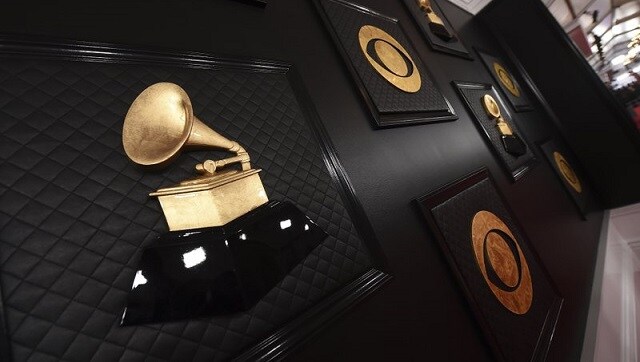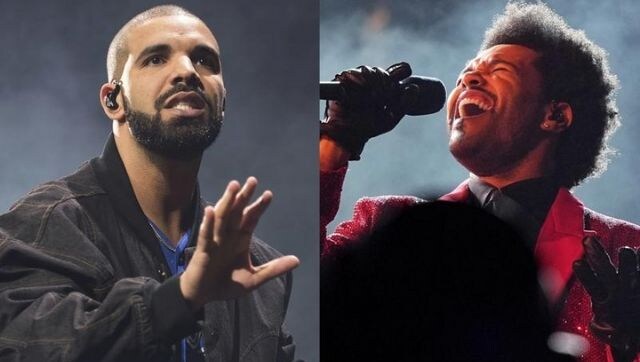Halston on Netflix, 1971 on Apple TV+ demonstrate how '70s music was as chic as politically fuelled
The music of Halston is as unique and stylish as the designer itself, reminding us there is so much more to the sound of the era than the classic rock we constantly allude to.

Still from Halston
Ever since the '70s, our fascination with the 1970s has been ceaseless.
Fifty years since, our association with the era feels like it is set in stone. Amongst our most immediate recollection is how definitive the sound of the music truly was. American rock bands like Eagles, Tom Petty, Steely Dan, and Aerosmith among others indelibly established themselves while Brit legends like Led Zeppelin, The Rolling Stones, Queen, Black Sabbath, and more garnered much fame in the US and around the world.
Starting from the year after Woodstock, the decade started to move away from the hippie-hugging, peace-loving music to statement-making, stance-taking, politically-fuelled musical pursuits that heralded change. Or at least made significant attempts to.
In the Apple TV+ eight-part docuseries 1971: The Year That Music Changed Everything, that released on 21 May, musicians, historians, and those who were part of the scene back then look at this turning point year through the prism of arts-based activism. Intelligent use of archival footage, with audio clips of real rockstars, journalists, and politicians, gives this series an edge over all the other oversaturated endeavours in showcasing the era.
And it is a gargantuan task to fit in just so much that happened in 1971 alone because — as the series points out — this was the US at the time of a highly unpopular war, a highly unpopular president (Richard Nixon), racial divide, rise of a newer generation, a brewing civil rights movement, poor policy-led joblessness, and an overwhelming urge for change. Musicians were balladeers of the times, particularly the ones of the rock variety due to their predisposition for anti-establishment writing.
So much happened in 1971 alone that set the tone of much of the decade. As mentioned in the docuseries, “It was a year of revolution and consciousness." From Marvin Gaye’s revolution-inspiring singing to The Doors' final LP LA Woman released before Jim Morrison’s tragic demise, The Who’s runaway hit ‘Who’s Next’ to The Rolling Stones giving us ‘Sticky Fingers,' 1971 saw bands shifting and shaping their sounds. David Bowie gave us ‘Hunky Dory,' T-Rex gave us ‘Electric Warrior,' and Sly & the Family Stone called 1971 with ‘There’s a Riot Going On.'
Even as the docuseries curiously omits Jethro Tull’s magnum opus ‘Aqualung,’ and gives negligible space to heavy metal band Black Sabbath that also dominated the scene, its clinical approach to sticking to reportage removes much of the excesses we have come to associate with rock musicians, particularly those mentioned in the book the series is based on: Never a Dull Moment: 1971 the Year That Rock Exploded by British journalist David Hepworth.
But in another book-based TV series that coincides with the turn of the decade and through it, 1971, the excesses play a pivotal role in establishing the narrative of the title character. Released a week prior to the docuseries, Netflix’s five-episode series Halston (based on Steven Gaines’ 1990 book Simply Halston) finds much of its action in Studio 54, the upscale discotheque frequented by the cream of New York’s social circuit. Based on the life of legendary American fashion designer Roy Halston, the series recreates his rise to superstardom and elucidates how he put the US on a world fashion map hitherto dominated by French and Italian fashion houses.
While people shower praise on Ewan McGregor for his portrayal of the eponymous role, and director Daniel Minahan for showcasing a forgotten American icon so convincingly, a big part of the credit should also be given to the music that serves as a de facto narrator in several parts of the show.
As much as Halston is a visually stunning show (obviously, given it is about fashion), it is a sonic experience like few others.
In fact, a far cry from what we typically associate with the music of the '70s, the music of Halston is as chic, unique, and stylish as the designer itself, reminding us there is so much more to the sound of the era than the classic rock we constantly allude to. Of course, one cannot represent the time without giving space to all the bands mentioned above that have made the rock of the time so classic. In many ways, the music itself is gloriously personified in both the Apple TV+ and Netflix outings: if music was the star of the docuseries, then it plays a solid supporting actor role to McGregor’s Halston.
Fittingly, even as the likes of The Velvet Underground and David Bowie form part of the soundtrack, Halston also features Giorgio Moroder, Donna Summer, Tears for Fears, and even Cocteau Twins, as the narrative shifts from the late '60s rock n’ roll sound to the electro-disco party scene of the mid- to late '70s and early '80s. Our own listening that dates back to Led Zeppelin in 1970 morphs through bass-rich funk into the immensely popular glitzy disco hits featuring Boney M, ABBA, Bee Gees, and their ilk.
So if Sly & Family Stone are sensing a revolution in the Apple TV+ docuseries, then in Halston, the band accompanies the credits of a scene that establishes the designer as so much more than a product of chance with ‘Everybody is a Star.' The show balances Joe Cocker’s ‘Got to Use My Imagination’ with the Eurovision hit ‘Si Gigliola Cinquetti,' Dan Hartman’s ‘Vertigo/Relight My Fire’ with Yaz’s ‘Winter Kills,' as it traces the story of a genius who like Icarus flew too close to the sun. Halston even juxtaposes Giorgio Moroder’s ‘Chase’ with the funeral scene when the designer grapples with his mother’s death.
The soundtrack is particularly important because it takes the narrative forward sometimes even the lead actors do not. As party life leads to burnouts, creativity plummets to catastrophe, the carefully curated soundtrack taps on the music of not only the major players of the time, to resonate with the personal struggles of the characters on screen. After all, the 1970s were not just about rock bands and causes. There was the raging urge to make a difference, to stand out, to be counted, and to excel, across a whole spectrum of musical genres. It ran parallel with the crushing disappointment towards establishments and a vicarious need to escape from it all.
Even as the scintillating music scene consumed many who succumbed to the excesses, the music itself served as an outlet for expression. Fifty years on, that we can still relate to this era, goes to show the timelessness of their creative pursuits. As mentioned in 1971: The Year That Music Changed Everything, “The music (of the time) was not a soundtrack. It was so much more than that."
also read

The Recording Academy widening nomination ambit for Album of the Year acknowledges all contributors, invites mediocrity
If the Recording Academy truly wants to effect change, then it should consider a separate category like Songwriter of the Year.

Sweden’s Ericsson Globe renamed Avicii Arena as tribute to Grammy-nominated artiste
"He would be extremely proud that this iconic building from today will bear his name," Avicii's father said while making the announcement

Billboard Awards 2021: The Weeknd, Drake lead nominations with highest number of nods
While The Weeknd bags 16 nominations at the Billboard Awards, Drake is up for seven honours this year and will receive the Artist of the Decade Award.
